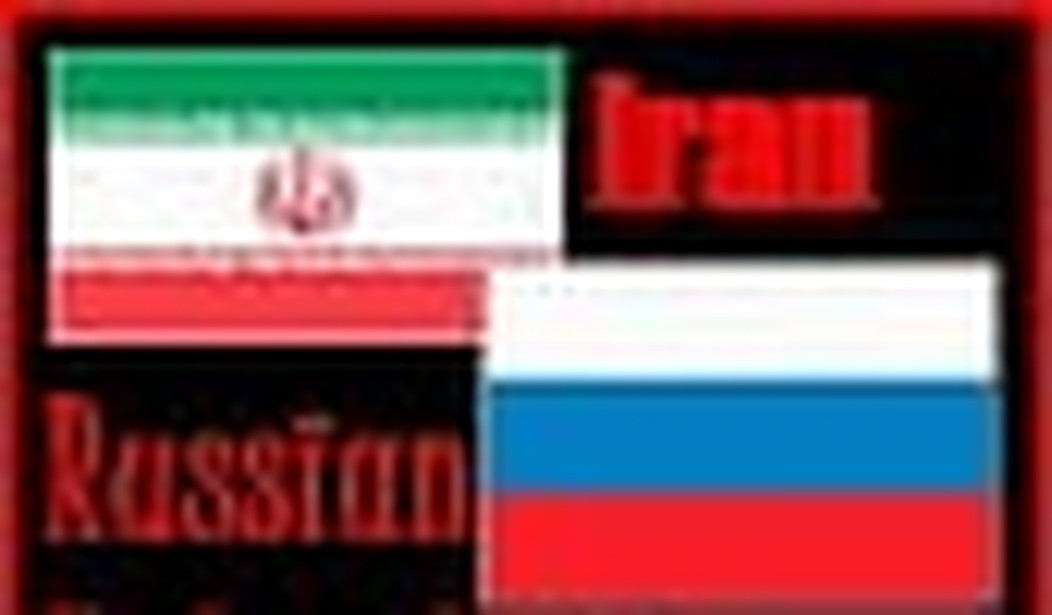On Wednesday, the Washington Post reported that Moscow might cooperate with American efforts to contain the Iranian nuclear program. If so, that would be a major reversal of policy — the Kremlin was key in stopping a fourth set of Washington-sponsored U.N. Security Council sanctions last summer and has been supplying the Iranians with crucial nuclear technology.
In fact, the Kremlin is key in just about everything involving the Islamic Republic. Tehran has two major supporters: Moscow and Beijing. Short of using force, nothing can be done about Iran as long as the mullahs retain both sponsors. With the Russians helping the Iranians, the Chinese — who compete with Moscow in the Middle East for influence — will also want to help. Strip Russia away from Iran, however, and China can be forced to withdraw support as well. In this case, the United States can make Beijing choose sides. As difficult as the Chinese can be, they do not want to be put on the spot and held responsible for the actions of crazed Iranians. When they have had cover, China’s leaders have invariably engaged in grossly irresponsible behavior. But when they have been isolated, they have almost always been accommodating.
Peeling the Russians away from Iran, therefore, would be a major coup for the Obama administration. So it is no surprise that Washington offered a deal to the Kremlin when Under Secretary for Political Affairs William Burns visited Moscow in mid-February. Then, the State Department’s third-ranking official said there would be no need for missile defense in Europe if Iran no longer had a nuclear weapons program. This arrangement also seems to have been raised in a letter Obama sent his Russian counterpart, Dmitry Medvedev, in the middle of last month.
Of course, a deal with President Medvedev would be consistent with Washington’s goals to hit the “reset button” with the Kremlin. And the concept of a fresh start is indeed attractive. Who, after all, wants to refight the Cold War? Moreover, it should be possible for Washington to trade away missile defense for defanging Tehran. For one thing, Russia has no interest in adding another nuclear-armed neighbor, no matter how friendly it may be at this moment. Russian expressions of concern about the latest Iranian satellite launch also seem genuine. Furthermore, the small and rudimentary missile defense system contemplated at this moment — only 10 interceptors based in Poland — is useful for protecting Europe only against missiles launched from Iran. Consequently, a proposed deal along these lines makes sense for both parties.
Yet there is much working against a bargain with Russia. Moscow will undoubtedly try to complicate the situation and broaden the arrangement to include other things it wants. Some of those items on the Kremlin’s wish list are, from our perspective, desirable — an extension of the Strategic Arms Reduction Treaty, for instance — and others are deeply objectionable, such as the exclusion of allies Ukraine and Georgia from NATO membership.
Yet the problems go beyond the intricacies of Russian negotiating tactics. Moscow, unfortunately, has core interests that would be undermined by such a deal with the United States. First and foremost, any arrangement might actually calm the Middle East. Russia, as British historian Niall Ferguson has pointed out, is the only major power with no interest in seeing peace in the region. The world’s biggest supplier of hydrocarbons is helped when troubles in that neighborhood send oil and gas prices skyward.
And Russia is hurt when those prices decline. The country’s gross domestic product dropped from an impressive 8.1 percent in 2007 to 5.6 percent last year due largely to the plunge in energy and metal prices in the second half of the year. Russian officials are now saying their country’s economy will contract by 2.2 percent this year, but even that assessment appears optimistic unless there is an unexpected recovery in commodities. Unfortunately, development of the industrial and service sectors lagged during Vladimir Putin’s tenure, so Russia is still held hostage to daily price changes in oil and gas. “I cannot remember a worse year since the end of the Second World War,” said Russian Finance Minister Alexei Kudrin, referring to 2008. Then I guess he is not looking forward to this year. Russia put together its 2009 budget on the assumption that oil would average $95 per barrel. After a small bounce upward, it is now trading around $50.
The precipitous fall in the Russian economy could make Medvedev and Prime Minister Putin more aware of the limitations on their ambitions, but it appears to be moving them in the opposite direction. President Medvedev, for instance, announced this week a major rearmament plan of both conventional and nuclear forces, despite the deterioration of the Russian economy. And senior Kremlin officials are continuing to blame the United States for the global downturn even though it is in their best interests to improve economic relations with Washington. There is no explanation for it except the one an analyst offered a few years ago: “The Russians are acting like Russians again.”
The fundamental problem with relying on Moscow, however, is not that the Russians are naturally hostile or that their interests are diametrically opposed to ours. It is that they will not make the decision to lend a hand until it is too late. The Obama administration has yet to acknowledge that the Iranians are close — perhaps within months — to acquiring all the knowledge and expertise needed to make nuclear weapons. We are, unfortunately, at the “last chance saloon.” Russia, even if it might be inclined to help avoid disaster, will not do so in time.









Join the conversation as a VIP Member